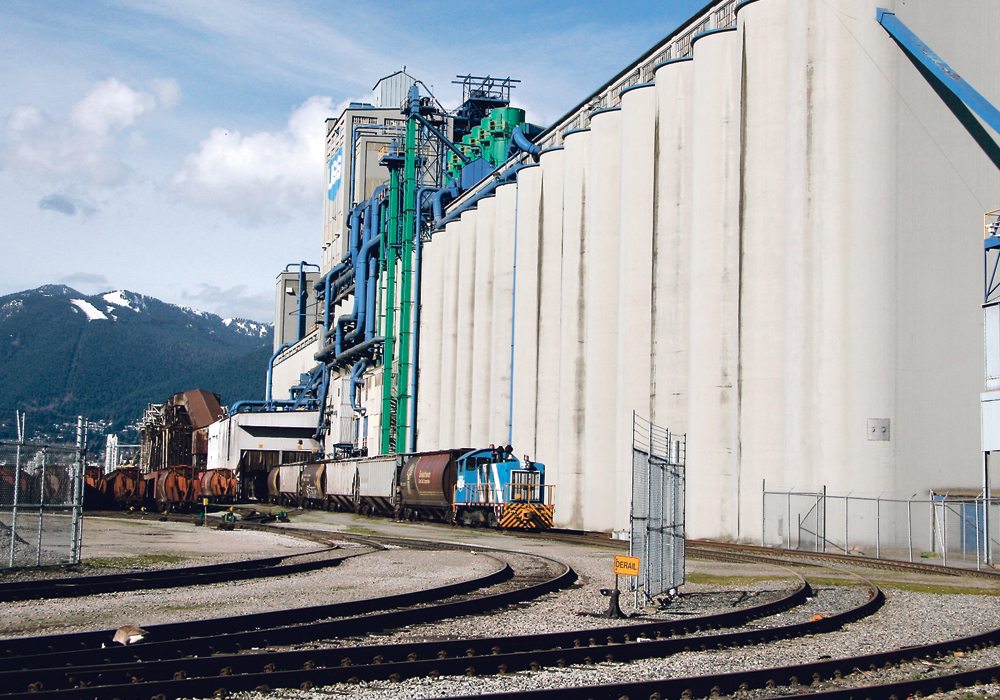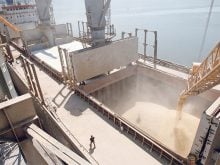OTTAWA (Reuters) — Canada’s two main railways locked out around 10,000 of their Canadian unionized workers early today, starting an unprecedented simultaneous work stoppage that will grind almost all railway freight movement in the country to a halt.
How integrated are the rail networks across North America?
Canadian National Railway and Canadian Pacific Kansas City have said their rail networks south of the border will continue to operate, but industry groups fear that a work stoppage would have far-reaching effects on the movement of goods and commodities across North America.
Read Also

New coal mine proposal met with old concerns
A smaller version of the previously rejected Grassy Mountain coal mine project in Crowsnest Pass is back on the table, and the Livingstone Landowners Group continues to voice concerns about the environmental risks.
Related stories: WP rail stoppage coverage
CN and CPKC’s coast-to-coast rail networks in Canada connect south of the border and serve as important supply chain links to trade corridors and ports across North America.
The networks intersect with those of U.S. rail operators such as BNSF Railway, Union Pacific, Norfolk Southern and CSX, facilitating the movement of billions of dollars’ worth of goods and commodities through ports and warehouses across the continent.
CN’s network stretches south to New Orleans. CPKC’s network links to the U.S. ports of Corpus Christi, New Orleans and Gulfport, and it extends further south to the ports of Tampico and Lázaro Cárdenas on the east and west coasts of Mexico.
How would a Canadian rail stoppage affect the United States?
Around a third of the traffic moved by the two Canadian rail companies crosses the border with the United States.
Many U.S. companies and producers, especially those in the Midwest, use Canadian ports for imports and exports because Montreal can be faster for shipments to and from Europe, while Vancouver can be faster for ocean service to and from Asia.
Union Pacific, the No. 2 U.S. railroad operator, has warned that a simultaneous stoppage would have devastating consequences for the U.S. and Canadian economies.
Ratings agency Moody’s said the stoppage could cost more than $341 million per day.
Dozens of groups representing miners, farmers, exporters and fertilizer producers, among others, have warned that their sectors face crippling supply-chain delays, increased costs, cash-flow constraints and potential shutdowns in a protracted stoppage.
How would the U.S. and Canadian farm sectors be affected?
A stoppage would hit the movement of everything from wheat to ethanol, potash and meat.
In particular, it would crimp shipments of U.S. spring wheat from Minnesota, North Dakota and South Dakota to the Pacific Northwest for export. A stoppage would also hit Canadian potash and grain exports.
The U.S. exported $28.3 billion of agricultural products to Canada in 2023, making it the third-largest destination for U.S. agricultural exports behind China and Mexico. The U.S. imported $40.1 billion of Canadian agricultural products last year, making Canada the second-largest source of U.S. agricultural imports.
Ethanol, potash, corn, cereals, foodgrains, cooking oil and meat are among the agricultural products traded between the two nations.
Will trade with Mexico be affected, too?
Mexico is Canada’s third-largest single-country merchandise trading partner behind the U.S. and China, while Canada was Mexico’s fourth-largest merchandise trading partner in 2023.
Mexico exports trucks, cars and vehicle parts to Canada, along with mangoes and avocados. Canada exports wheat, meat, aluminium, cars and parts to Mexico.
Two-way trade between the two countries, much of which moves via the rails, was nearly $55 billion in 2023.
Can the trucking industry step into the breach?
Truckers say they are facing a surge in demand and that road freight rates are rising for shippers in Canada. However, industry insiders say that while the trucking sector can handle some of the demand, it cannot replace rail distribution. In some cases, the industry does not have the equipment, nor the capacity, to handle bulk commodity cargoes such as potash, grain or coal.

















